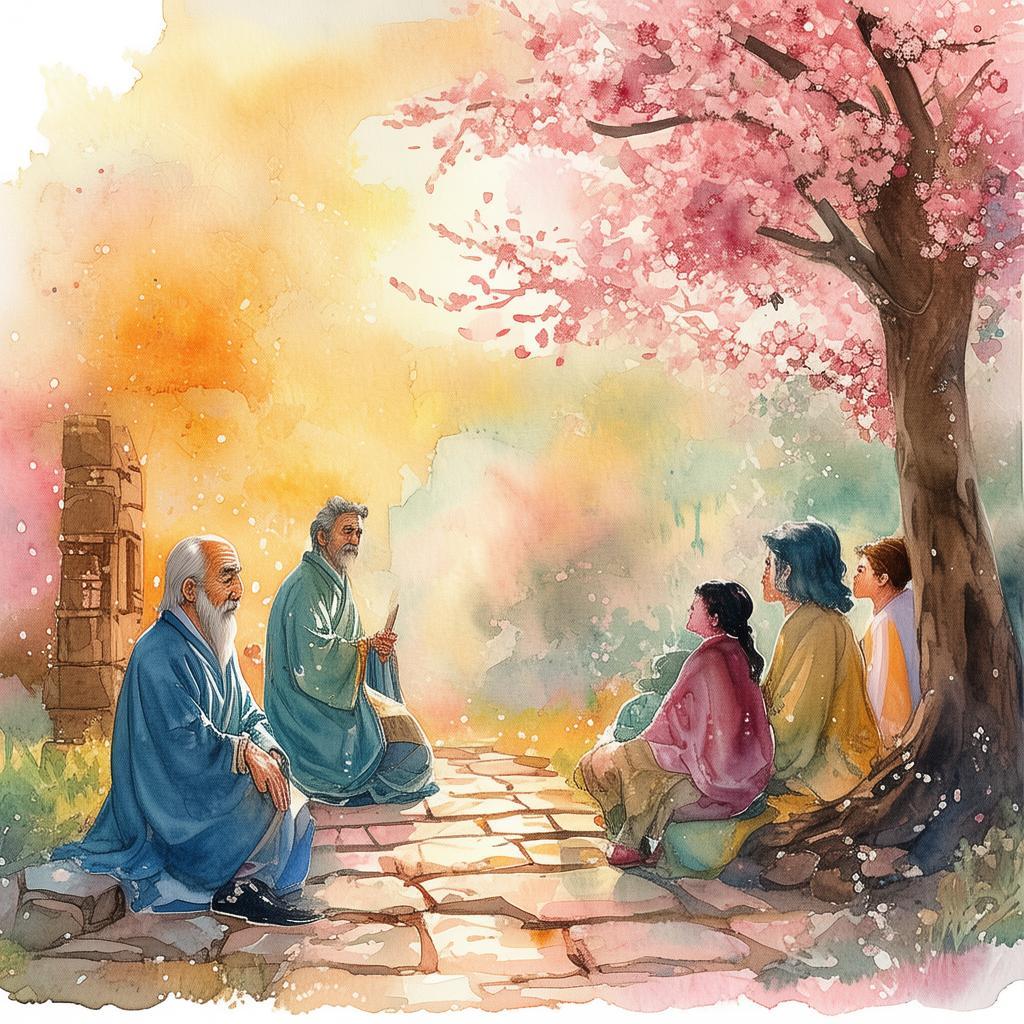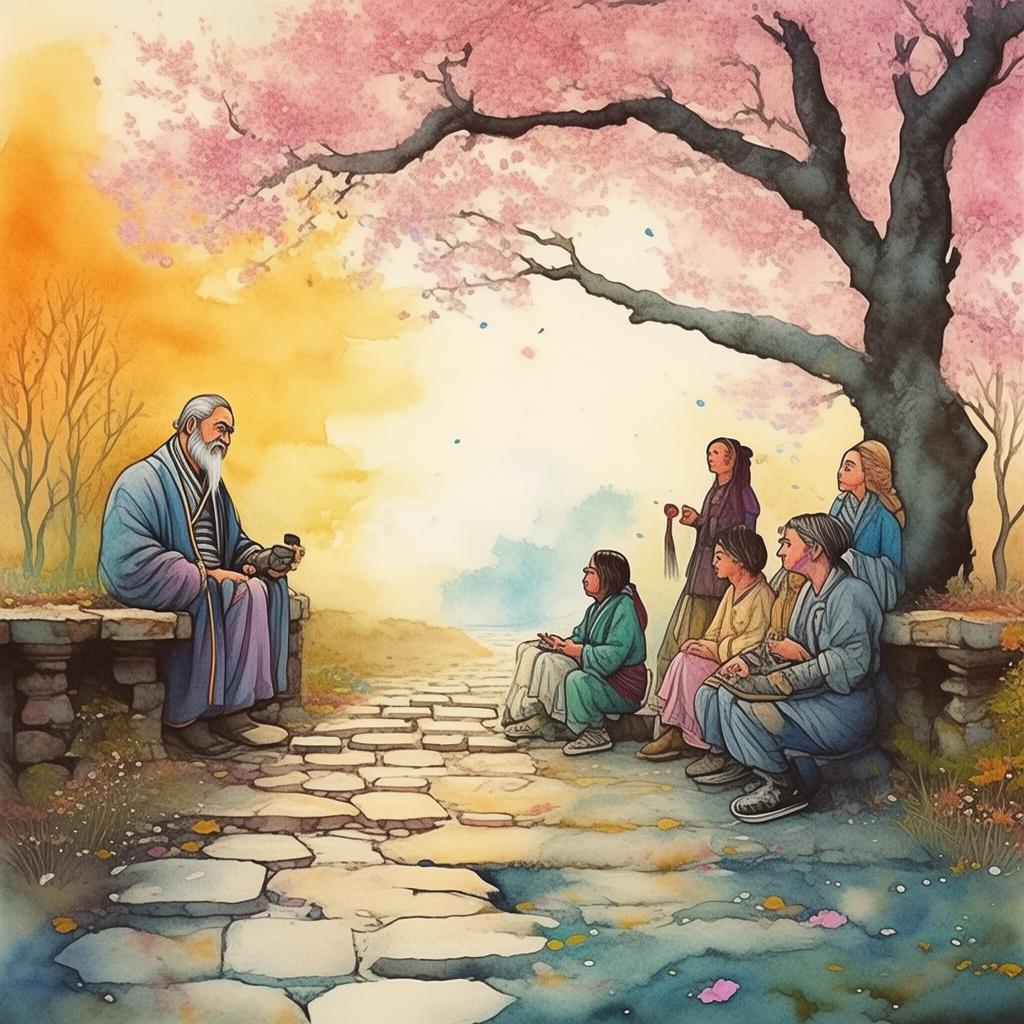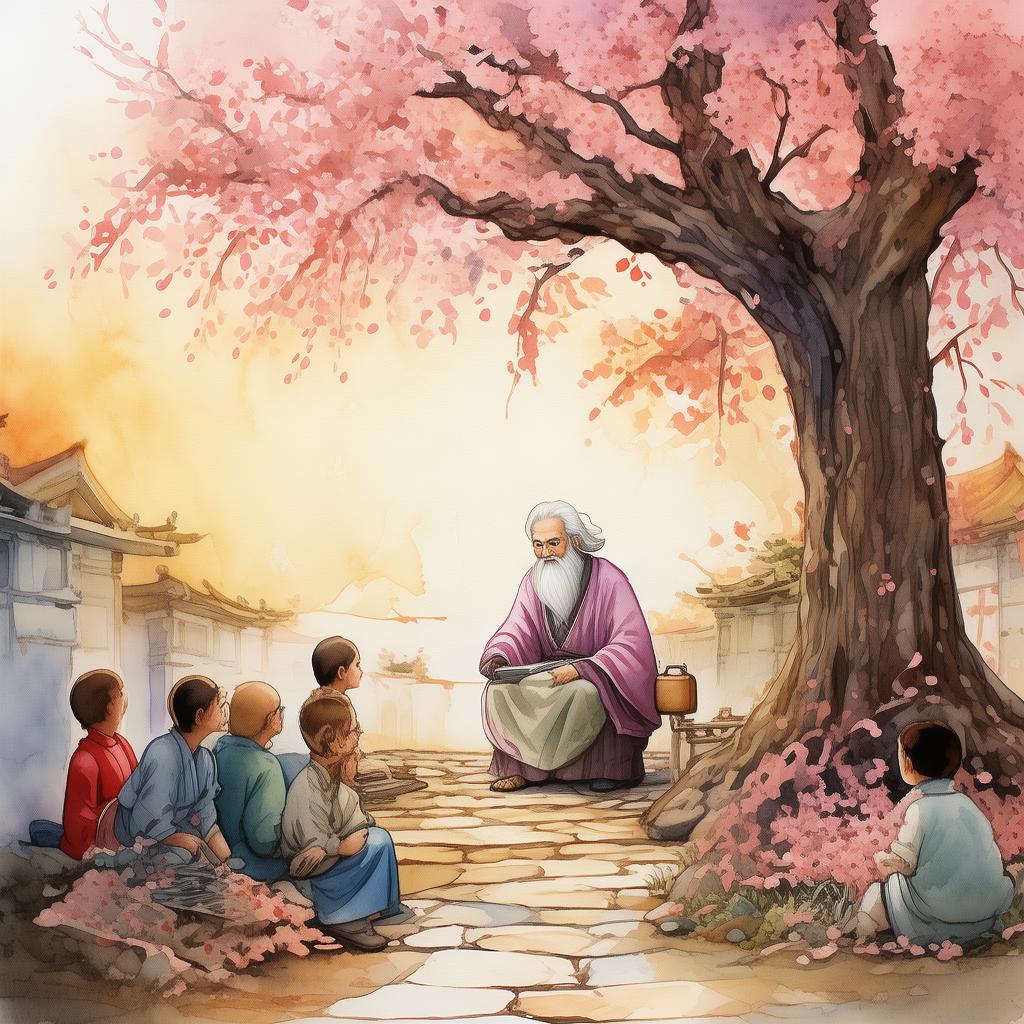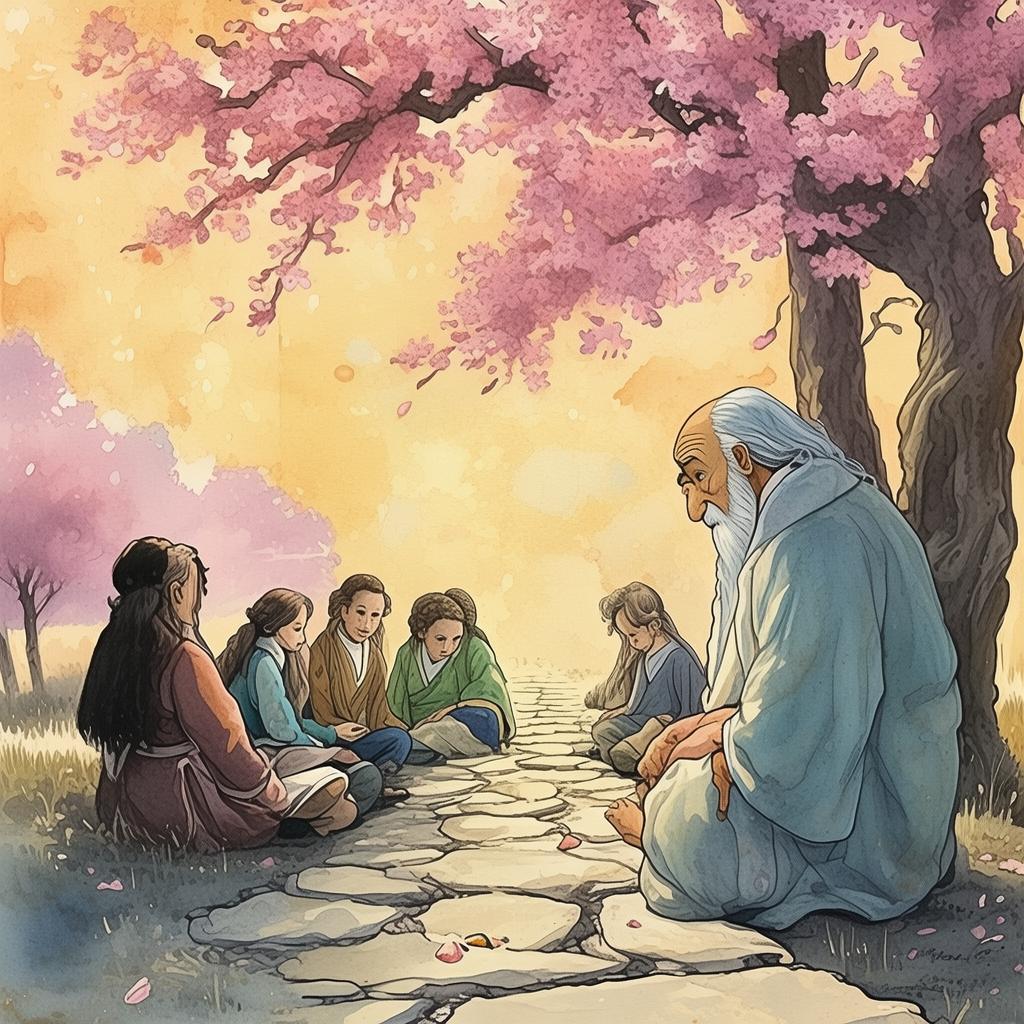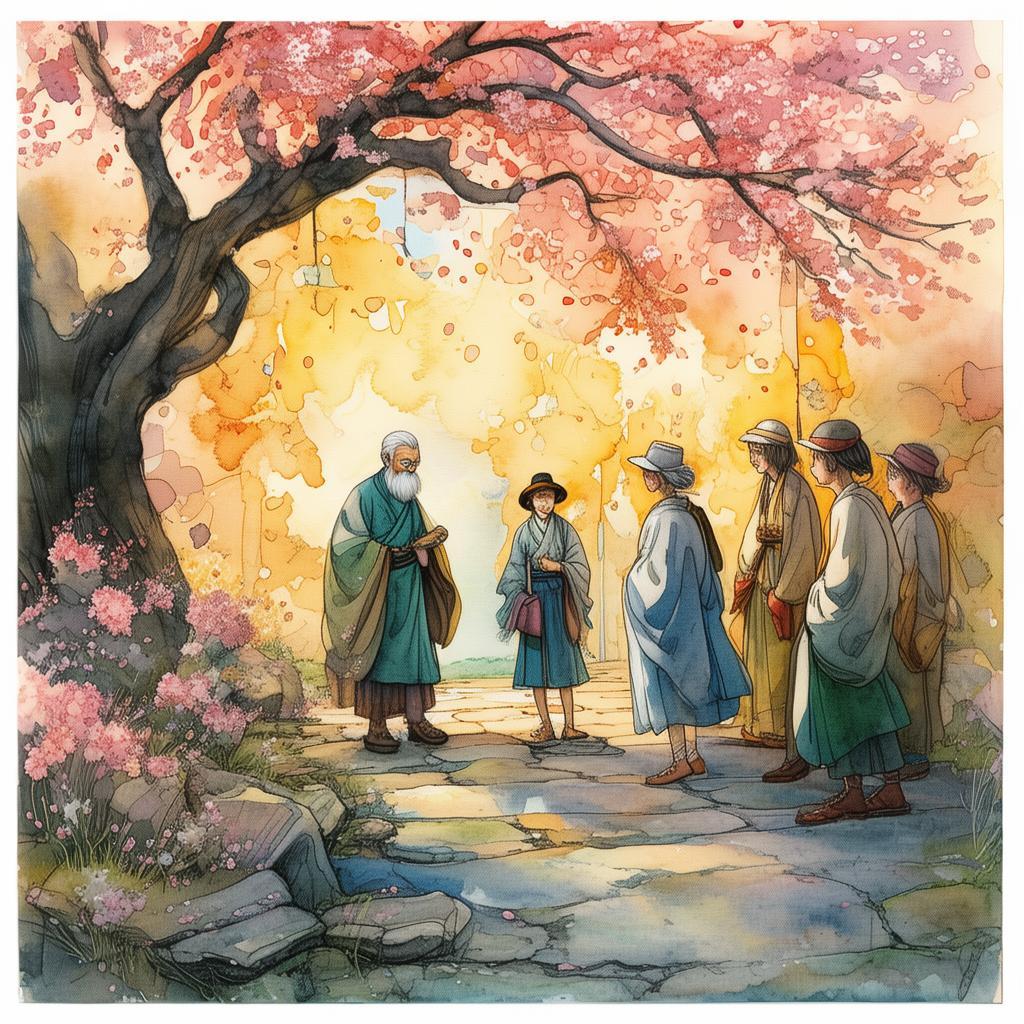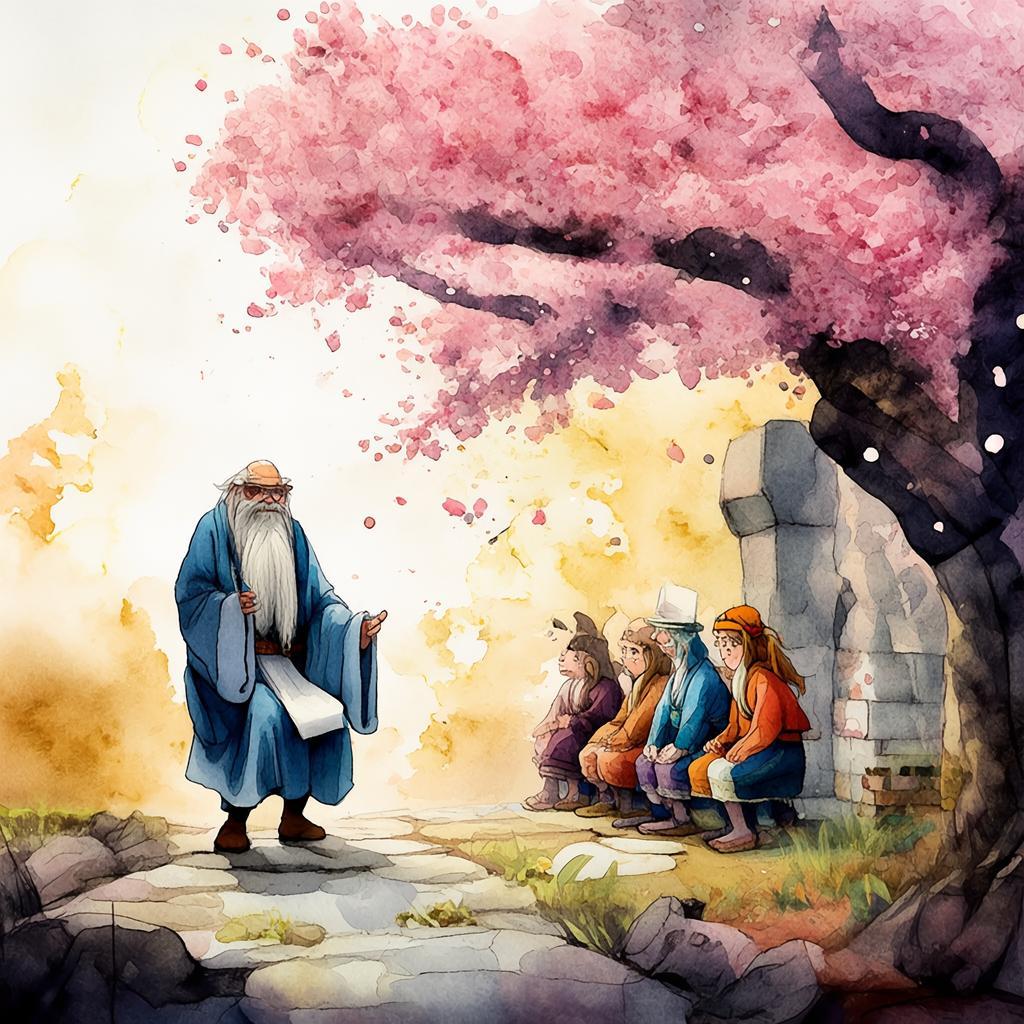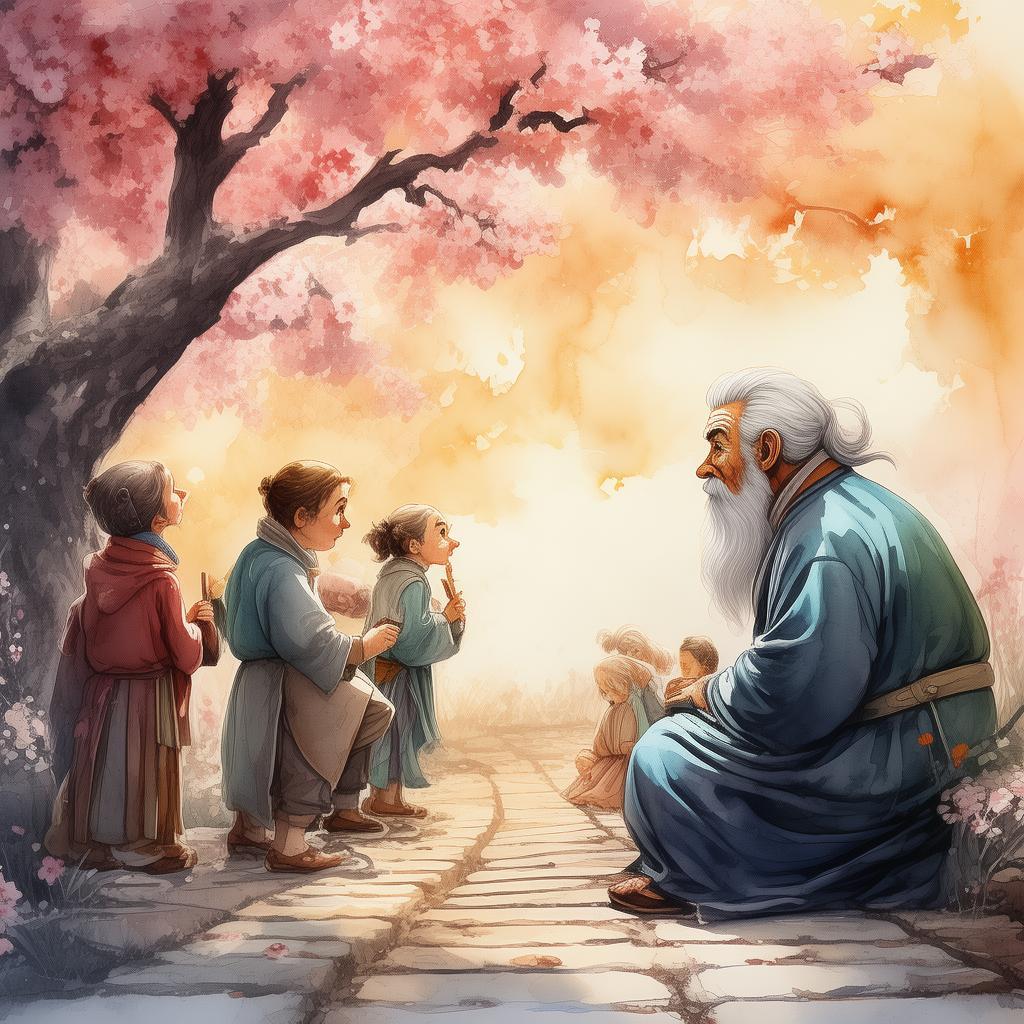The Time-Stealing Thief's Mischievous Mayhem
In the bustling city of Chang'an during the Tang Dynasty, there was a tale that spread like wildfire. It spoke of a thief whose cunning and cleverness were unparalleled, a thief who dared to steal time itself. His name was the Time-Stealing Thief, and his mischievous mayhem was the stuff of legends.
The Time-Stealing Thief was no ordinary criminal. His hands were deft, his mind sharper than a sword, and his heart, a churning cauldron of mischief. He had a penchant for time travel, a skill he had mastered through years of study and experimentation. With a single glance at a clock, he could leap into the past or the future, a thief of moments, a pirate of time.
One fateful day, the Time-Stealing Thief decided to test the wisdom of the ancient Chinese proverb, "Time is a thief, but memory is a treasure." He chose to steal the memories of the most famous philosopher of the era, Confucius, a man whose words had shaped the very fabric of Chinese society.
As the Time-Stealing Thief approached Confucius' abode, he felt a shiver of excitement. He knew that by stealing the philosopher's memories, he would not only possess the knowledge of the ages but also the respect and admiration of all who heard of his deed. With a swift motion, he reached out and touched the ancient sage's mind, and in an instant, he was gone.
The Time-Stealing Thief found himself in the court of Confucius, where the philosopher was surrounded by his disciples, discussing the nature of time and the human condition. The thief listened intently, absorbing every word, every nuance of Confucius' thoughts. He felt the weight of the wisdom, the depth of the knowledge, and he knew that this was just the beginning of his time-stealing adventure.
As the sun set, the Time-Stealing Thief returned to his own time, but not without consequence. Confucius, feeling a strange emptiness within, realized that something was missing. He searched his mind, but the memories of his teachings were gone. The thief had stolen not only the memories but also the essence of Confucius' wisdom.
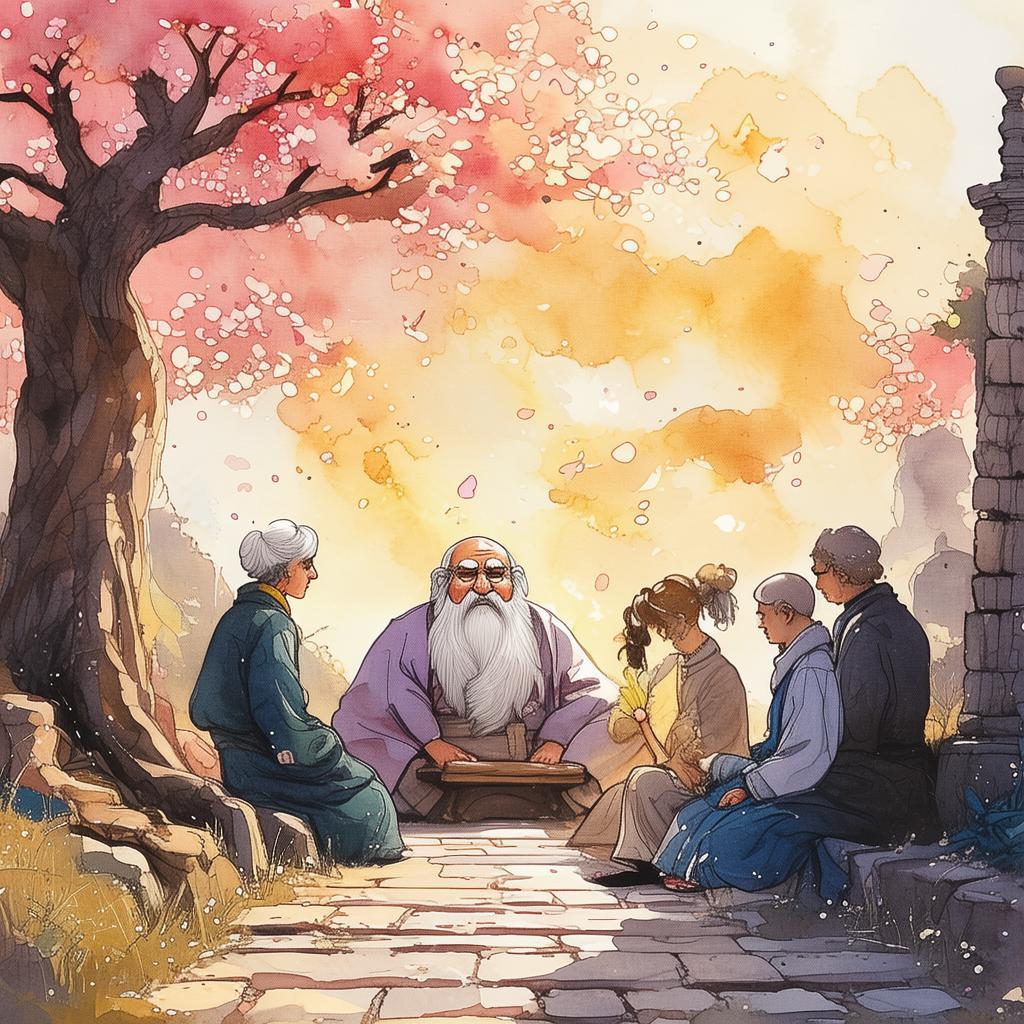
Word of the philosopher's plight spread quickly through Chang'an. The emperor himself was concerned, for Confucius was more than a philosopher; he was a beacon of wisdom and a guardian of the empire's moral compass. The emperor decreed a search for the Time-Stealing Thief, offering a reward that would make even the most daring thief drool.
The Time-Stealing Thief, feeling the pressure of the pursuit, decided to test another proverb, "A wise man knows when to keep silent." He chose to steal the silence of the night, a time when the city was at its most vulnerable. With a flick of his wrist, he vanished into the darkness, leaving behind a trail of confusion and fear.
The thief found himself in the heart of Chang'an, surrounded by the city's most elite guards. He knew that if he were to be caught, he would be executed. But the Time-Stealing Thief was not one to back down from a challenge. He decided to steal the night itself, to become the embodiment of darkness.
As the thief reached out to touch the night, he felt a surge of power. The darkness around him thickened, and he could see the guards' eyes widen in fear. But just as he was about to claim victory, a voice echoed through the night, "The thief of time, remember this: silence is not the absence of sound, but the absence of desire."
The Time-Stealing Thief, caught in the reflection of his own cleverness, realized the folly of his actions. He understood that time was not to be toyed with, that wisdom was not to be stolen. With a heavy heart, he reached out once more, this time to return the stolen memories to Confucius.
As the Time-Stealing Thief returned the memories, Confucius felt the wisdom flow back into his mind. The emperor, who had been following the events with a mix of awe and fear, decreed that the Time-Stealing Thief would be allowed to live, provided he used his time-traveling abilities for the good of the empire.
The Time-Stealing Thief, now a changed man, vowed to use his powers wisely. He became a guardian of time, a protector of the past and the future. And so, the legend of the Time-Stealing Thief's Mischievous Mayhem turned into a tale of redemption and the power of wisdom.
In the end, the Time-Stealing Thief learned that time was indeed a thief, but memory was a treasure. And that the true value of time was not in its possession, but in its use.
✨ Original Statement ✨
All articles published on this website (including but not limited to text, images, videos, and other content) are original or authorized for reposting and are protected by relevant laws. Without the explicit written permission of this website, no individual or organization may copy, modify, repost, or use the content for commercial purposes.
If you need to quote or cooperate, please contact this site for authorization. We reserve the right to pursue legal responsibility for any unauthorized use.
Hereby declared.
